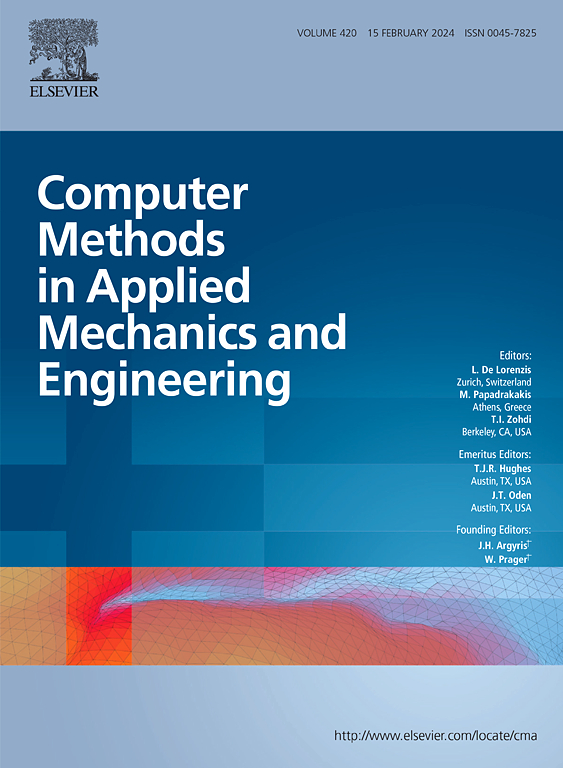自适应策略管理:大型结构优化设计的新框架
IF 7.3
1区 工程技术
Q1 ENGINEERING, MULTIDISCIPLINARY
Computer Methods in Applied Mechanics and Engineering
Pub Date : 2025-07-29
DOI:10.1016/j.cma.2025.118256
引用次数: 0
摘要
本研究引入自适应策略管理(ASM)框架,旨在通过在多个解生成策略之间动态切换来提高计算昂贵的优化过程的效率。ASM框架集成了三个核心步骤:过滤、切换和更新,这使得它能够根据实时性能反馈自适应地决定评估哪些解决方案。提出了几种基于asm的变体,每种变体都实现了不同的过滤和切换机制,例如基于生成的选择、基于邻近度的过滤以及由当前或全局最佳解决方案指导的策略切换。混沌博弈优化(Chaos Game Optimization, CGO)被选为核心优化器,其更新后的方程被修改以提高性能,同时不会产生额外的计算成本以及策略级创新。对中型、大型和超大型结构问题的广泛评估表明,所开发的方法始终优于其他方法。值得注意的是,ASM-Close全局最佳方法结合了接近滤波和全局最佳知识,在所有性能区间都取得了卓越的结果,展示了鲁棒性收敛和高质量的解决方案。这些发现强调了自适应策略管理在提高大规模优化性能方面的潜力,并为未来的研究开辟了新的方向,包括其他策略选择,跨元启发式的更广泛应用,以及扩展到多目标和约束优化问题。本文章由计算机程序翻译,如有差异,请以英文原文为准。
Adaptive Strategy Management: A new framework for large-scale structural optimization design
This study introduces the Adaptive Strategy Management (ASM) framework designed to enhance the efficiency of computationally expensive optimization processes by dynamically switching between multiple solution-generation strategies. The ASM framework integrates three core steps: filtering, switching, and updating, which allow it to adaptively decide which solutions to evaluate based on real-time performance feedback. Several ASM-based variants are proposed, each implementing different filtering and switching mechanisms, such as generated-based selection, proximity-based filtering, and strategy switching guided by the current or global best solutions. Chaos Game Optimization (CGO) is selected as the core optimizer, with its updated equations modified to improve performance without incurring additional computational costs alongside strategy-level innovations. Extensive evaluations on medium-, large- and very large-scale structural problems demonstrate that the developed methods consistently outperform other approaches. Notably, the ASM-Close Global Best method, which combines proximity filtering with global best knowledge, achieved superior results across all performance intervals, showcasing robust convergence and high-quality solutions. These findings underscore the potential of Adaptive Strategy Management in improving large-scale optimization performance and open new directions for future research, including other strategy selections, broader applications across metaheuristics, and extensions to multi-objective and constrained optimization problems.
求助全文
通过发布文献求助,成功后即可免费获取论文全文。
去求助
来源期刊
CiteScore
12.70
自引率
15.30%
发文量
719
审稿时长
44 days
期刊介绍:
Computer Methods in Applied Mechanics and Engineering stands as a cornerstone in the realm of computational science and engineering. With a history spanning over five decades, the journal has been a key platform for disseminating papers on advanced mathematical modeling and numerical solutions. Interdisciplinary in nature, these contributions encompass mechanics, mathematics, computer science, and various scientific disciplines. The journal welcomes a broad range of computational methods addressing the simulation, analysis, and design of complex physical problems, making it a vital resource for researchers in the field.

 求助内容:
求助内容: 应助结果提醒方式:
应助结果提醒方式:


